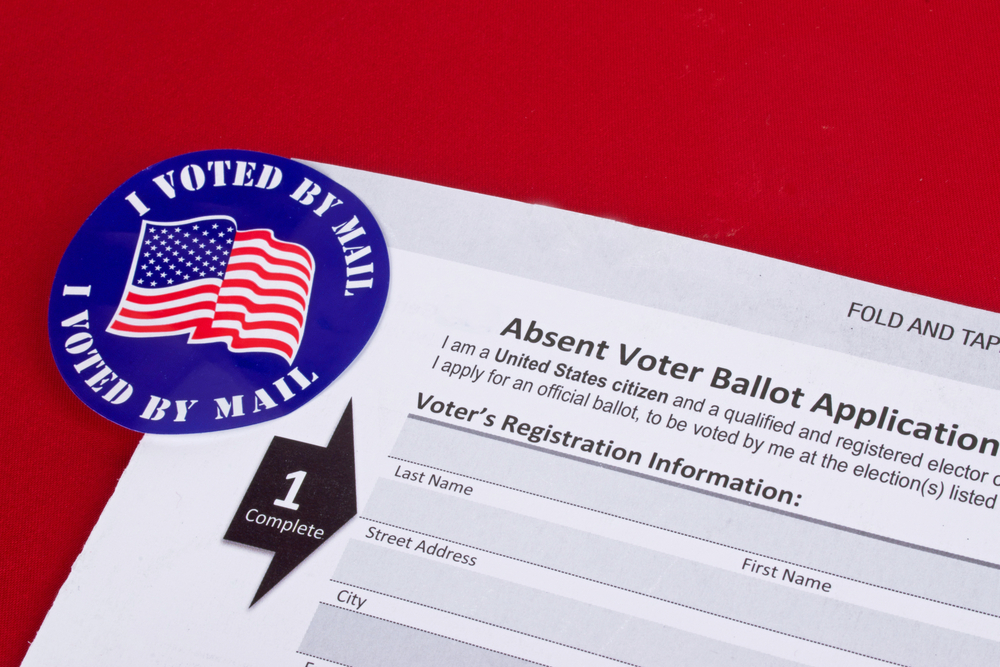On Sept. 11, Christopher Prue — Vernon Democratic Registrar of Voters and president of Registrars of Voters Association of Connecticut — joined election officials across the country who expressed grave concerns about the U.S. Postal Service’s (USPS) handling of election mail ahead of the 2024 election.
In a letter addressed to the USPS Postmaster General (PMG), Louis Dejoy, the election officials criticized USPS for its failures, while raising “serious questions.” Among the main issues raised are ongoing problems with processing facility operations, lost or delayed election mail and front-line training deficiencies impacting USPS’s ability to deliver election mail in a timely and accurate manner.
These criticisms, however, are not made in a vacuum, but expand upon the issues discovered in USPS audit, “Election Mail Readiness for the 2024 General Election,” which was released in July. The letter points to specific discrepancies mentioned in the audit that reports USPS employees, from customer relations managers to local postal carriers, are “uninformed about USPS policies around election mail.” As a result, ballots are being “deliberately” delayed, held due to “erroneous billing issues,” or even mis-delivered, leading to voters being “disenfranchised.”
This isn’t just a one-off problem. With more than 600,000 USPS employees, the frequency of these mistakes points to a widespread lack of understanding of basic postal procedures, the letter states.
But that’s not all. The letter continues stating that for years, election officials have worked to stress the importance of voters requesting and returning ballots by mail early, especially with First-Class delivery standards which are three to five business days. Despite these efforts, election officials from nearly every state continue to receive ballots with timely postmarks long after Election Day, well beyond what the USPS promises for First-Class mail.
Reports from multiple states indicate dozens, if not hundreds, of ballots arriving 10 or more days after being postmarked. No amount of proactive outreach from election officials can compensate for USPS’s repeated failure to meet its own delivery standards.
To make matters worse, an increasing amount of mail is being marked as undeliverable at “higher than usual rates.” even when voters haven’t moved. This issue isn’t limited to just ballots; it also includes critical voter information and address confirmation cards. In some cases, ballots mailed to election offices are returned to voters with the election office address marked as “undeliverable.” Election officials say this is “happening nationwide despite mail piece design approval from USPS Mail Piece Design Analysts.”
When election mail is returned to an office as undeliverable, it could trigger voter registration list maintenance under the National Voter Registration Act of 1993. This means voters could be moved to an inactive list and may need to verify their address before participating in the election.
The surge in undeliverable mail thus raises two critical concerns: the risk of disenfranchising voters who don’t receive their ballots or whose ballots don’t reach election offices, and the potential for eligible voters to have their registrations canceled.
Prue and his colleagues warn that these ongoing challenges, if left unaddressed, could disenfranchise voters who rely on absentee ballots and erode public trust in the electoral process. They also emphasize that “despite repeated engagement with USPS Election and Political Mail headquarters staff and state/regional Managers of Customer Relations, we have not seen improvement or concerted efforts to remediate our concerns.”
In response to the concerns, DeJoy issued his own letter, dated Sept. 13, writing, “You can rest assured that along with the entire United States Postal Service, I am personally fully committed to effective implementation of our longstanding processes and procedures designed to ensure that all ballot mail is delivered in a timely and secure manner.”
DeJoy claims that the USPS is already taking steps to address the concerns raised by election officials, informing them that internal training for employees is currently underway. He also pushed back on criticism regarding delivery times, stating, “Mail is currently being delivered in 2.7 days, and Election Mail routinely outperforms our regular service performance.” Additionally, DeJoy highlighted new initiatives aimed at ensuring that employees handling “undeliverable as addressed” mail are following proper procedures to prevent ballots from being incorrectly returned to election officials.
Despite DeJoy’s assurances, it remains unclear whether his strategies are having any tangible impact or offering reassurance to state election officials. In Kansas’‘ August primary, reports indicated that nearly 1,000 ballots, mailed before Election Day, arrived at county offices more than three days late or lacked the necessary postmark. Meanwhile, both Maine and New Hampshire Secretaries of State have issued warnings, advising absentee voters to plan for potential mail delays in the upcoming elections.
Adding to these concerns, Connecticut voters will have a decision to make in November with the No-Excuse Absentee Voting Amendment on the ballot. A “yes” vote would allow any voter to request a mail-in ballot without needing an excuse, while a “no” vote would keep current law, which requires voters to provide a specific reason for voting by absentee ballot. With election officials worried about USPS performance, this amendment could have major implications for how elections are conducted and decided in Connecticut.

